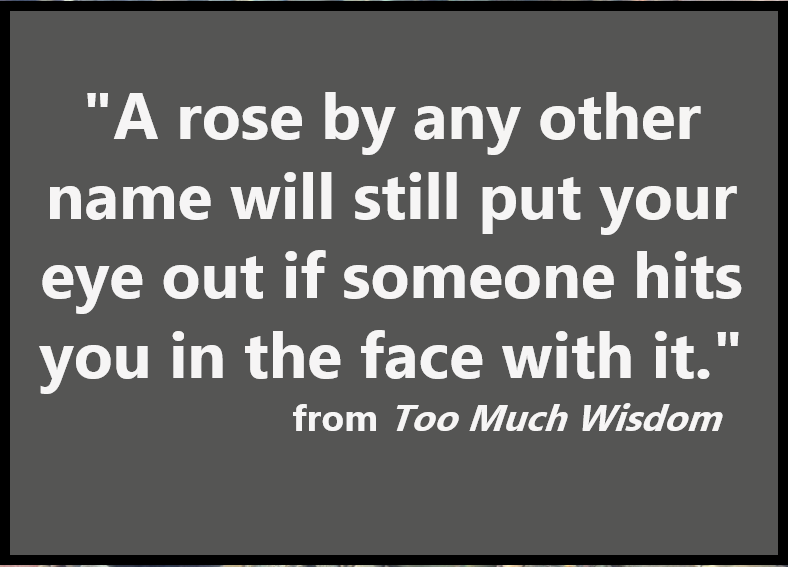|
The kind of racial problems we have today did not exist once. Let me explain. There was a time in human history – and it was a long time, it covers basically our entire past and all people everywhere – when any outsider was automatically beneath consideration. You were part of your own group, and that was it. Other groups were there to be avoided or used. The Aztecs used prisoners and slaves as human sacrifices. The Romans used other nations for revenue and border guards. The English used India as a source of income and tea. The Jews avoided others unless they first agreed to assimilate. The Native American tribes regularly stole from, enslaved, and avoided each other. The early Americans used African slaves as labor. This is the history of the human race, and although you can find little details here and there which you might try to use to paint a different picture, those are all exceptions; and for every exception, there are thousands of facts which establish the rule.
This was not seen as a problem of race. If it was considered a problem at all, it could be considered a problem of power. How can we be strong enough to conquer, or avoid invasion? How can we benefit without giving away too much? How can we keep people out? How can we sharpen the dividing line? The only racial problem most people ever considered was how to use or avoid other groups. Today, thank God, there is a different idea at work in the world which turns those old human assumptions on their head; it’s the idea that the different people, the other people, the individuals who are Not In My Group – that those people are just as important as me, and they are worth just as much as me (or more) and I should have genuine compassion for them. Once you believe that people in other groups are worthy, and that you should actually consider them, empathize with them, include them, and be equal with them, you have a new problem. That new problem is something like this: How on earth do we do that, when it’s so hard, or when we’ve been programmed not to think that way? Now let’s be honest: This is a good problem to have. It’s much better than the problems of how to avoid others, or how to use them. But it’s still a problem because it’s hard to do, it goes against our nature, and it’s rare. That’s where we are today. Our old problem has been transformed. It used to be “Keep out! Members only!” but now it's more like “You and I are equal... why can’t we act like it?” Some individuals in our society are still clinging to the old problem, and we call them racists. But today, many of us have been infused with the other, better problem in a way that is historically unique. Where did this modern problem come from? To be blunt, it was never stated clearly or blatantly until the early church came along and realized that the racial and religious Jew/Gentile divide had been obliterated by Jesus Christ. Once that sank in, the Jewish habit (to avoid others) and the Gentile habit (to look down on Jews) each became irrelevant within the church, and the new problem became this: Now that we have been united together, how do we make it work? Paul the Apostle started out persecuting those who were outside of his initiated Jewish group, but once he joined the church he realized that nobody – no other race, color, nationality, gender, class, or age group – was to be excluded or used. The new creed became his famous words in Galatians 3: “There is neither Jew nor Greek, there is neither slave nor free, there is no male and female, for you are all one in Christ Jesus.” Notice that this covers the three most common historical lines of separation: Race, Class, Sex. This is where our contemporary problem really started, and it’s why we are struggling the way we are today. In the United States, most of the people by far who wanted to abolish slavery were Christians who had Christian motives, whose desires were directed by the gospel. Sure, if you look hard enough you can find people who claimed to be Christian who defended slavery, but they are exceptions – and they lost. And when they defended slavery, they were contradicting Jesus (and Paul too) so really, they just clarify the scope of the problem, and their ignorant hypocrisy highlights the reality of the issue. In our modern world today, we would not have the idea of equality unless Jesus Christ had directly inspired that idea to enter into our history. Just go back and read John chapter 4. Nobody else did what he did for all people everywhere regardless of their race - in his daily life, or on the cross. His true followers realized what he had done, and because of his actions they had to learn how to think and act differently, which meant they had to address a new problem that had never existed before. Then, even though they didn’t always get it right and even though we haven’t always been faithful to the truth, their teachings entered our world anyway, so that now there are millions of people who assume equality is a thing even though they don’t realize their beliefs can be traced back to Jesus Christ. Our problem, the true problem, the problem of all of us who believe in equality, is a new one which can be phrased this way: Since we’re all equal, and since we all deserve justice, and since every human life is worthwhile in God’s eyes, and since everyone deserves compassion and empathy... how can we structure our lives and society so that we honor each other? We rarely stop to think about how new that problem is; it’s a good problem to have; it demands a solution; and it only exists today because of Jesus Christ. In fact, maybe we won’t be able to actually find a solution to that problem until we acknowledge whom it really originated with, and unless we’re honest about the fact that we’re going to answer to him for how we deal with it.
0 Comments
Leave a Reply. |
Click on the link to go right to Josh's Amazon Author page.www.amazon.com/Josh-McFarland/e/B0868TJ4CP/ref=dp_byline_cont_book_1 Archives
February 2021
Categories |
Site powered by Weebly. Managed by Hostgator




 RSS Feed
RSS Feed